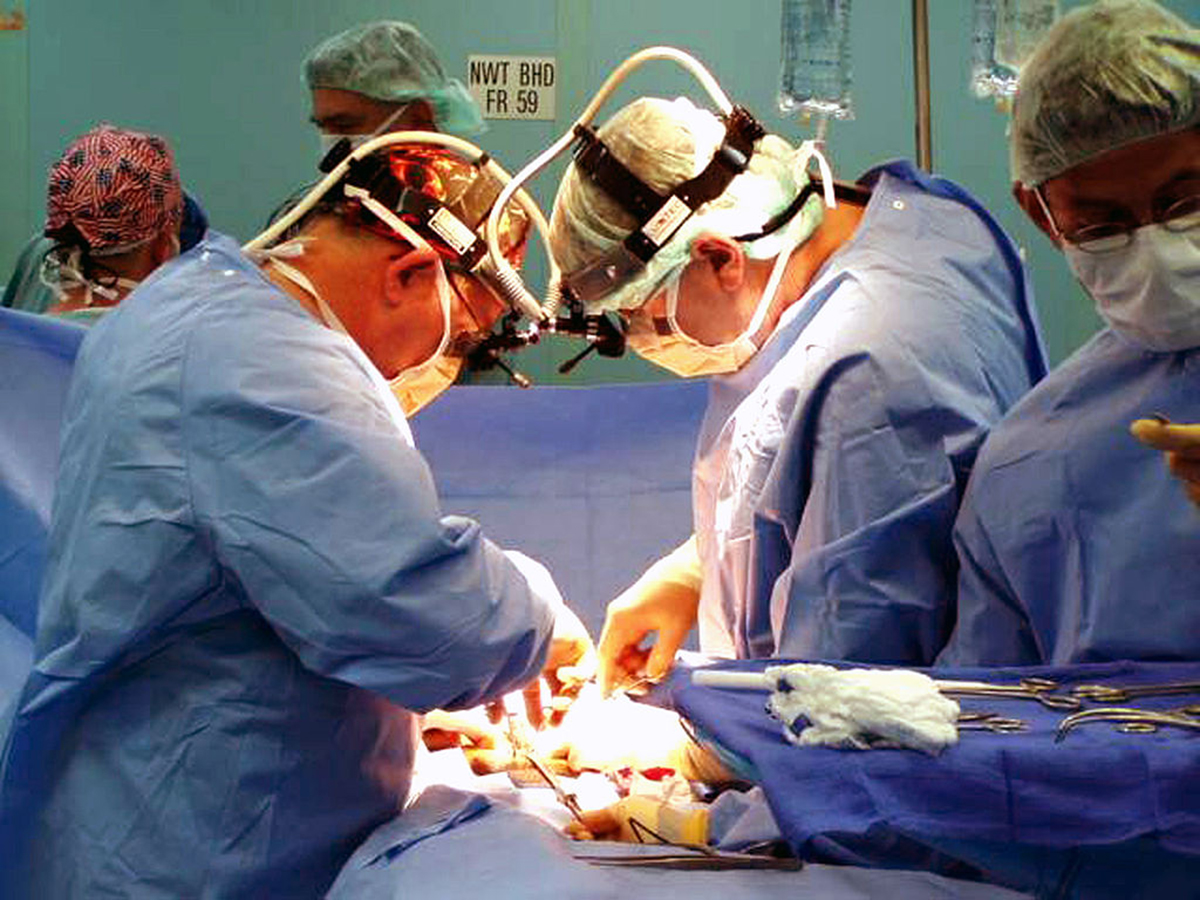Table of Contents
Many scientists are now questioning why bariatric surgery is still being used as the last resort in treating morbid obesity, when evidence has clearly shown that it can significantly reduce weight and bring about metabolic benefits. Dr. David Cummings, of the University of Washington in Seattle, believes that the current guidelines for treating obesity are outdated and must consider the benefits of bariatric surgery more carefully.

The advantages of bariatric surgery include:
-
Rapid change in weight over a few months
-
Significant weight loss (up to 50% of excess weight) is achieved over several months
-
Weight loss is much greater than that achieved by non-surgical weight loss programs
-
Sustained weight control over many years
-
Helps in reducing high cholesterol
-
Reduced risk of diabetes, liver disease, high blood pressure, heart disease, stroke, and obstructive sleep apnea.
-
Improves low back pain and arthritis
-
Improves physical appearance and increases one's self-confidence
-
Improves one's ability to do physical activity
-
Improves psychosocial aspect of life
-
May improve life expectancy
These advantages are believed to outweigh the disadvantages of bariatric surgery, which include:
-
Common post-surgical complications, including pain, bleeding, and infection.
-
During the first few months, rapid weight loss may result in body reactions such as fatigue, hair loss, body aches, mood changes, and dry skin.
-
Need to change eating behaviors, since the small stomach capacity will limit the amount of food one can eat
-
One may experience nutritional deficiencies because of inability to absorb nutrients from small intestine.
-
Need for lifetime vitamin and mineral supplementation to make up for malabsorption of nutrients.
-
Need to make frequent medical consultations and undergo laboratory examinations to monitor health.
-
One may need to undergo cosmetic surgery to remove loose skin and improve appearance.
-
Gallstone formation is common.
Studies show that compared to the costs of medical treatment for obesity and its related diseases, the cost for bariatric surgery and follow-up treatments is much lower.
See Also: Gastric Bypass Surgery: The Best Slimming method
Candidates for weight-loss surgery are morbidly obese patients and severely obese patients who are at risk for obesity-related diseases such as heart disease, diabetes, high blood pressure, stroke and more. He must be healthy enough to tolerate surgery. Aside from these, the patient must be psychologically stable and must have realistic expectations of the surgery. He must be able to comply with behavioral changes needed to maintain health after the surgery, including changes in diet and going for follow-up check-ups to monitor his health. A supportive family and social environment will help him undergo the many changes that will follow the surgery.
The decision on whether a patient should undergo bariatric surgery to lose weight and prevent obesity-related complications depends on various factors, including the patient's choice and a doctor's assessment of the suitability of the procedure for the individual. However, with the many advantages of weight-loss surgery, doctors must consider bariatric surgery as a strong option rather than as a last resort in the treatment of obesity.
- Medpage Today. Endo Type: Use Bariatric Tx to Battle Obesity. http://www.medpagetoday.com/Endocrinology/GeneralEndocrinology/44093
- Medpage Today. New Guidelines Urge Docs to Focus on Obesity. http://www.medpagetoday.com/MeetingCoverage/ObesityWeek/42929
- Maggard M, Shugarman L, Suttorp M, et al. Meta-Analysis: Surgical Treatment of Obesity. Ann Intern Med. 2005
- 142(7):547-559.http://annals.org/article.aspx?articleid=718311
- WebMD. Bariatric Surgery Benefits May Outweigh Risks. http://www.webmd.com/diet/weight-loss-surgery/news/20110314/bariatric-surgery-benefits-may-outweigh-risks Cleveland Clinic Journal of Medicine. Risks and benefits of bariatric surgery: Current evidence. my.clevelandclinic.org/Documents/Bariatric_Surgery/schauerbest.pdf
- Photo courtesy of Kevin Old by Flickr : www.flickr.com/photos/kevinold/2467970254
- Photo courtesy of U.S. Navy photo by Lt. Cmdr. Roy Rice. by Wikimedia Commons : commons.wikimedia.org/wiki/File:US_Navy_030223-N-8119R-001_Doctors_perform_surgery.jpg
- www.webmd.com
- www.medpagetoday.com
- annals.org
- my.clevelandclinic.org

